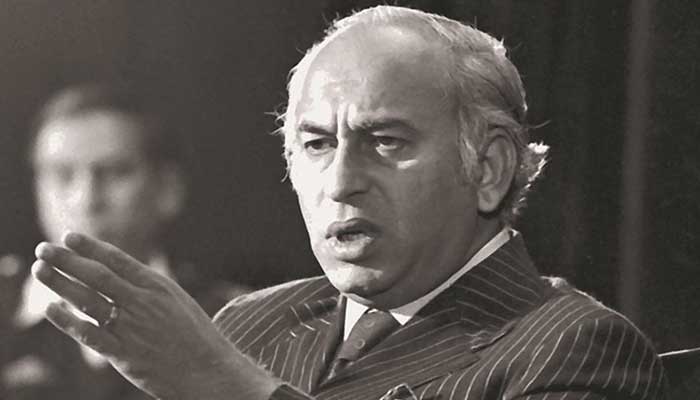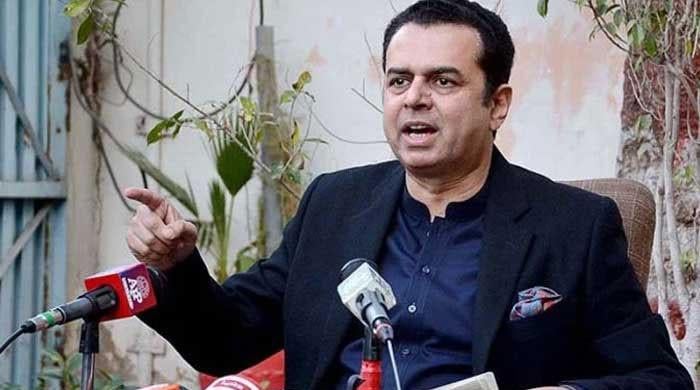Govt to move SC for hearing Bhutto’s 'judicial murder' reference by full court
Zulfikar Ali Bhutto's “judicial murder” reference had been pending in apex court for past 12 years
April 04, 2023

- Minister says govt will write to apex court following cabinet's decision.
- Zardari sent reference under Article 186 in April 2011.
- Govt to ask SC to rectify historic mistake in judicial history.
ISLAMABAD: Minister for Law and Justice Azam Nazeer Tarar Tuesday said the government, his ministry in particular, would write to the Supreme Court of Pakistan to hear the presidential reference regarding the “judicial murder” of former prime minister Zulfikar Ali Bhutto by a full court bench.
The development came after the federal cabinet decided to approach the country's top court on Bhutto's 44th death anniversary observed today.
When addressing the National Assembly session, the minister said that the former premier had given the country a unanimous Constitution, but his “judicial murder” reference had been pending in the apex court for the past 12 years.
Tarar added that, as per the cabinet’s decision, his ministry would write to the apex court to form a full court bench to hear the reference, so that it can rectify the historic mistake in judicial history.
Then-president Asif Ali Zardari sent the reference under Article 186 on April 2, 2011, to the Supreme Court.
The law minister said he was sad over the three-member bench’s judgement as the apex court was requested multiple times to constitute a full court bench to decide the polls delay case.
"Collective wisdom was needed to avert the constitutional crisis and stop further deteriorating the prevailing ones," he said, adding that the Parliament had also passed a resolution in that regard.
"The division in the apex court was pointed out, which was requested not to make any decision in haste," he mentioned.
The Attorney General for Pakistan (AGP), Tarar said, had also requested the top court during the last day’s hearing to form a seven-member bench but the same was rejected. Another request for a 13-member bench was also turned down.
The legal team would decide about the future course of action on the matter, the minister said during the NA session.
The Pakistan Muslim League-Nawaz (PML-N) politician also said the coalition parties, which are part of the incumbent government, were not made parties in the case and their lawyers did not get even a single chance to speak during the last six days of the hearing. He spoke about feeling dejected over “the creation of such a crisis".
Tarar maintained that it was also “meaningful” that a six-member bench had been formed to review the judgement of Justice Qazi Faez Isa who had ordered to stop the proceedings of cases initiated under Article 184/3 of the Constitution until the formation of the SC rules.
The matter related to Justice Isa’s verdict seemed to have not been addressed with an executive order, he added.
“There should not be any environment of conflicts in institutions and the impression of political engineering through institutions should also be avoided.”
Azam Tarar further said the government wanted free and fair elections across the country simultaneously. He cited that according to Article 224 of the Constitution, general elections should be held at the same time across the country, while as per Article 254 polls could be postponed due to some extraordinary situation.
The Election Commission of Pakistan (ECP) had the mandate to adjust the schedule of the election keeping in view the ground realities but the Supreme Court had itself given the date in its verdict now, he added.
The minister said the two provincial assemblies were dissolved by the Pakistan Tehreek-e-Insaf-led government in January just to satisfy the ego of PTI Chairman Imran Khan.
The three-member SC bench’s verdict regarding elections in Punjab, he claimed, would further deepen the constitutional and political crises in the country.
“We have reservations about the decision and our legal team will decide about the future course of action after consultations,” he said.









